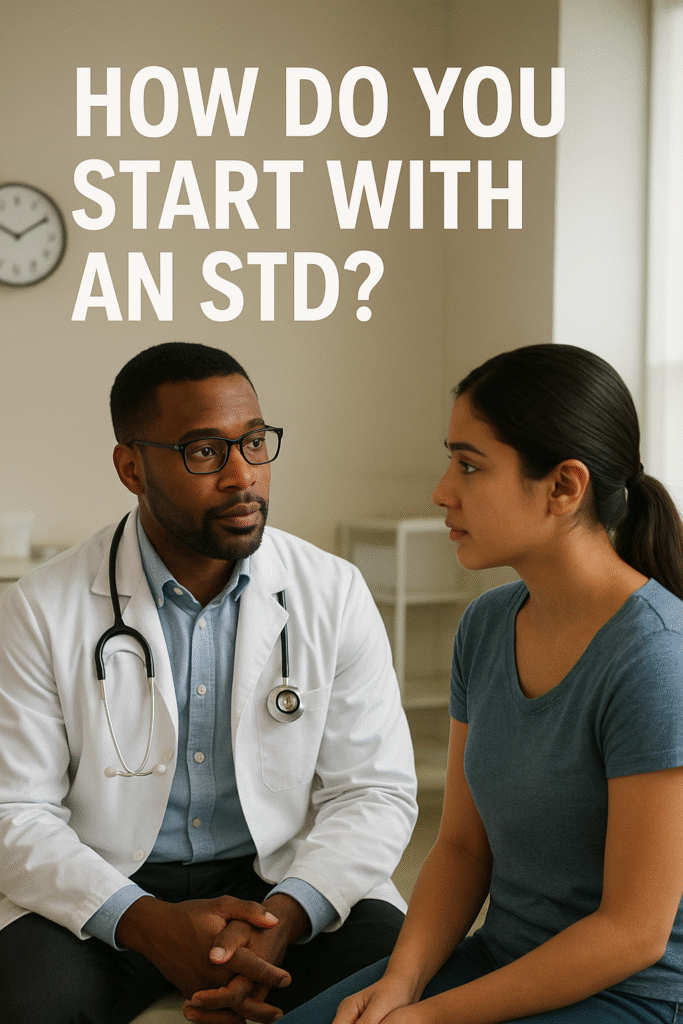Sexually Transmitted Disease, begins when germs like bacteria, virus or parasites pass from an infected person’s body into your system during sexual contact with someone’s skin, body fluids or blood who has the infection. It occurs during unprotected vaginal, anal or oral sex, or via skin-to-skin contact with infected areas.
STDs can also be transmitted through needles, blood transfusions, or from a mother to her baby during pregnancy, childbirth or breast-feeding. Many people with an STD Treatment las vegas don’t have any symptoms at all, which is why testing and prevention are so important.
How STDs Begin in the Body
After that, when the infection makes its way into the body, it adheres to the moist tissues of places like your mouth, genitals and rectum. Some germs hatch fast and lead to early symptoms, while others take weeks or months to emerge.
For example:
- Bacterial STDs, such as chlamydia and gonorrhea, thrive in the reproductive tract.
- Blood or nervous system disease is caused by viral STDs like HIV and herpes.
- Parasitic organisms such as trichomoniasis dwell in the genitalia and can be easily shared through sexual contact.
And even if no symptoms develop, the infection can still be transmitted to others. That’s why early testing is so important.
Common Ways STDs Spread
Sexual activity is not the only thing that STDs are connected with. They can spread in several ways:
1. Unprotected Sex
The most common cause. Germs can be introduced during vaginal, oral or anal sex without a condom or barrier device.
2. Skin-to-Skin Contact
Some infections, such as HPV and herpes, can be spread through infected skin even when no sores are visible.
3. Sharing Needles
Using a needle that’s already been used for drugs, tattoos or piercings can transmit bloodborne viruses such as HIV and hepatitis B or C.
4. Blood Transfusions
Today screening has largely eliminated this, although infected blood may still harbor certain infections.
5. Mother to Baby
Pregnant women who have an STD can transmit the infection to their baby during pregnancy, childbirth, or breastfeeding.
Early Warning Signs of an STD
Some people experience changes not long after being infected, while others feel nothing at all. Common signs can include:
- Burning or pain during urination
- Unusual discharge from the genitals
- Sores, lumps, blisters near the mouth or genitals
- Itching, irritation, or swelling
- Pain during sex
- Flu like symptoms, such as fever or fatigue
If you have any of these signs, it’s a good idea to get tested. Left untreated, it could become infected and cause complications.
Ways to Reduce Your Risk of Getting an STD
You can reduce your risk of getting an STD with some common sense:
- Use Condoms or Dental Dams when engaging in any type of sexual activity
- Get the HPV and hepatitis B vaccine
- Have fewer partners or be in a monogamous relationship
- Avoid sharing needles or razors
- Get tested for STDs regularly, even if you feel fine
- Talk with your partner about sexual health
Prevention is better than cure — and helps shield you and your loved ones.
What to Do If You Think You Have an STD
If you think you might have been exposed, don’t panic. The majority of STDs are treatable, and early treatment is key.
Here’s what to do:
- Visit a healthcare provider for a test — it’s private and fast.
- Don’t have sex before you get those results.
- If you test positive, tell your partner(s) so they can be checked as well.
- Take treatment as directed — finish all prescribed medicine.
- Re-test following treatment to ensure the infection is cured.
There are a lot of bacterial infections, such as chlamydia, gonorrhea and syphilis, that are 100% treatable. Long-term therapy is essential in the treatment of viral diseases, such as HIV and herpes.
Living Healthy After an STD
An STD is not a character trait. Most people, with treatment, make a full recovery and live normal, healthy lives.
The secret is awareness, regular care and open communication. Safe practices and regular testing can safeguard not only you, but everyone around you.
Final Thoughts
An STD testing Las Vegas begins when bacteria, viruses, or parasites enter your system by way of unprotected sex, skin exposure, or sharing needles. For many people, it can be surprising to learn just how many STDs are transmitted by partners who do not show symptoms.
The greatest protection is safe sex, honest conversations, and testing regularly.
Supporting your sexual health by being aware and proactive will enable you to have complete control over an STI (and eventually infections to come). To schedule your appointment with the highest standard of care, visit Sahara West Urgent Care on our website, where you can also explore more informative blogs



